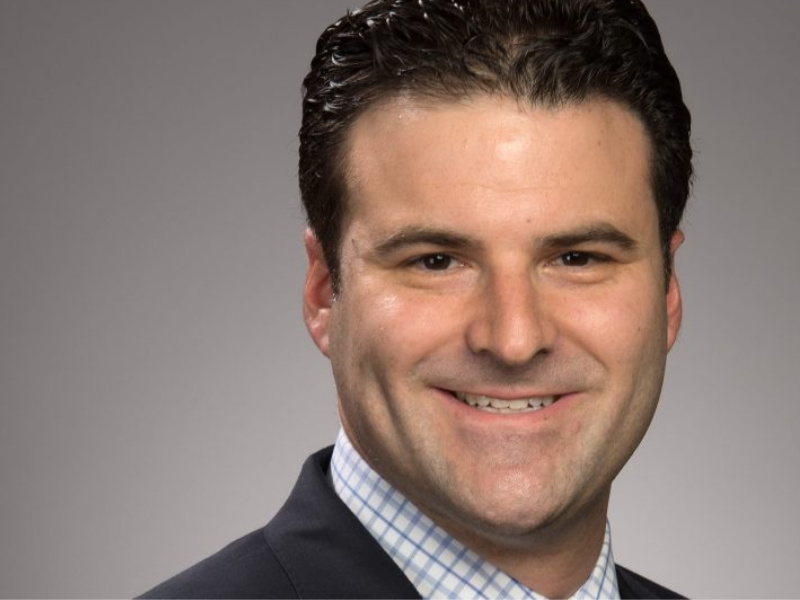Paul Holmes 13 Feb 2019 // 5:59PM GMT

SAN FRANCISCO—The increasingly blurry line between being a journalist and influencer, between working for a giant media company and building a personal brand, was the theme of a keynote session kicking off the IN2 Summit in San Francisco this morning, as ESPN and CNBC veteran Darren Rovell talked with Jeremy Mullman, partner at ICF Next (the former Olson Engage).
Rovell started a sports radio show during his junior year at Northwestern, and found it was easier to talk to politicians and business people than it was to talk to athletes. “I was getting these people easily because nobody was talking to them.” He then became the first sports business reporter at ESPN, and later “went from being the business nerd at ESPN to the cool sports guy at CNBC” and back again.
But he was also a pioneer in the use of social media, with more than 2 million Twitter followers. It started as an “information supply chain” for him, he says, and then became a megaphone for his own content, “the world’s largest sports bar.” In 2018, SportsBusiness Journal ranked Rovell the sixth most influential sports media personality on social media.
“On Twitter, I’m not an influencer, I’m a journalist,” he says. “I like what I like and I don’t like what I don’t like. If I took payment to tweet about a product, I’d lose the credibility I have as a journalist. Instagram is a little different. I will do a content partnership if I like the content.” On occasion, though, content developed with a partner—like his work as The Tailgater for Dr Pepper—will cross from one platform to another.
Discussing what works in influencer marketing, he said: “You have to find someone who’s a good talker, who has a great voice to start and talks really well about life, and who genuinely likes the product. And you have to have a good product.” The brands he admires for their content marketing include Skittles (an ICF client), Molson (for a campaign that delivered beer to Canadians in Europe), Footlocker (“they had Mike Tyson returning a piece of ear to Evander Holyfield”), and companies that create their own events, like cliff diving.
“The best companies are also the ones that understand that social media is 24/7,” he said. “I was working in Las Vegas watching a basketball game and I tweeted, ‘God I need an Excedrin,’ and three days later I received a special package from whoever handles Excedrin, with ‘Full Court Fail’ on the packaging. I had to tweet about it.”
He also discussed the importance of finding the right influencer, and understand what it took for those individuals to build a strong following. “PR firms and companies don’t understand how hard it is to break through. It’s like sports, where there are so many people who want to do it for free, you have to be really good to get paid for it.”
Discussing his move from ESPN to the little-known Action Network, which provides data and insight on the sports betting space, and serves as senior producer, Rovell explained: “I have always covered the business of sports and gambling was a niche in that space, but I found I was going from writing 20 articles a month to 40 articles a month and it was clear that more and more states are going to be legalizing sports gambling.”


































.jpg)



















